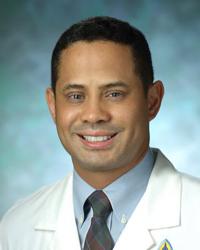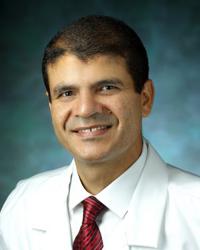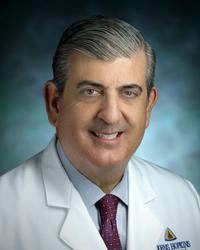Research Lab Results
-
Kunisaki Lab
The Kunisaki lab is a NIH-funded regenerative medicine group within the Division of General Pediatric Surgery at Johns Hopkins that works at the interface of stem cells, mechanobiology, and materials science. We seek to understand how biomaterials and mechanical forces affect developing tissues relevant to pediatric surgical disorders. To accomplish these aims, we take a developmental biology approach using induced pluripotent stem cells and other progenitor cell populations to understand the cellular and molecular mechanisms by which fetal organs develop in disease.
Our lab projects can be broadly divided into three major areas: 1) fetal spinal cord regeneration 2) fetal lung development 3) esophageal regeneration
Lab members: Juan Biancotti, PhD (Instructor/lab manager); Annie Sescleifer, MD (postdoc surgical resident); Kyra Halbert-Elliott (med student), Ciaran Bubb (undergrad)
Recent publications:
Kunisaki SM, Jiang G, Biancotti JC, Ho KKY, Dye BR, Liu AP, Spence JR. Human induced pluripotent stem cell-derived lung organoids in an ex vivo model of congenital diaphragmatic hernia fetal lung. Stem Cells Translational Medicine 2021, PMID: 32949227Biancotti JC, Walker KA, Jiang G, Di Bernardo J, Shea LD, Kunisaki SM. Hydrogel and neural progenitor cell delivery supports organotypic fetal spinal cord development in an ex vivo model of prenatal spina bifida repair. Journal of Tissue Engineering 2020, PMID: 32782773.
Kunisaki SM. Amniotic fluid stem cells for the treatment of surgical disorders in the fetus and neonate. Stem Cells Translational Medicine 2018, 7:767-773

-
Machine Biointerface Lab
Dr. Fridman's research group invents and develops bioelectronics for Neuroengineering and Medical Instrumentation applications. We develop innovative medical technology and we also conduct the necessary biological studies to understand how the technology could be effective and safe for people. Our lab is currently focused on developing the ""Safe Direct Current Stimulation"" technology, or SDCS. Unlike the currently available commercial neural prosthetic devices, such as cochlear implants, pacemakers, or Parkinson's deep brain stimulators that can only excite neurons, SDCS can excite, inhibit, and even sensitize them to input. This new technology opens a door to a wide range of applications that we are currently exploring along with device development: e.g. peripheral nerve stimulation for suppressing neuropathic pain, vestibular nerve stimulation to correct balance disorders, vagal nerve stimulation to suppress an asthma attack, and a host of other neuroprosthetic applications. Medical Instrumentation MouthLab is a ""tricorder"" device that we invented here in the Machine Biointerface Lab. The device currently obtains all vital signs within 60s: Pulse rate, breathing rate, temperature, blood pressure, blood oxygen saturation, electrocardiogram, and FEV1 (lung function) measurement. Because the device is in the mouth, it has access to saliva and to breath and we are focused now on expanding its capability to obtaining measures of dehydration and biomarkers that could be indicative of a wide range of internal disorders ranging from stress to kidney failure and even lung cancer. -
The Responsive Imaging BioSensors & BioEngineering (RISE) Lab
The RISE Lab’s research focuses on developing and evaluating cellular/molecular imaging biosensors and drug/nanoparticle delivery systems for improved therapeutic indices in precision medicine. -
Beer Lab
The goal of research in the Beer Lab is to understand how gene regulatory information is encoded in genomic DNA sequence. Our work uses functional genomics DNase-seq, ChIP-seq, RNA-seq, and chromatin state data to computationally identify combinations of transcription factor binding sites that operate to define the activity of cell-type specific enhancers. We are currently focused on improving SVM methodology by including more general sequence features and constraints predicting the impact of SNPs on enhancer activity (delta-SVM) and GWAS association for specific diseases, experimentally assessing the predicted impact of regulatory element mutation in mammalian cells, systematically determining regulatory element logic from ENCODE human and mouse data, and using this sequence based regulatory code to assess common modes of regulatory element evolution and variation. -
Borahay Lab: Gynecologic and Fibroids Research
Dr. Borahay's lab focuses on understanding pathobiology, developing novel treatments, and carrying out high quality clinical trials for common gynecologic problems with a special focus on uterine fibroids. Our lab also investigates the causes and novel treatments for menstrual disorders such as heavy and irregular periods. In addition, Dr. Borahay’s team explores innovative approaches to minimally invasive gynecologic surgery, focusing on outpatient procedures with less pain and faster recovery times. -
Laboratory for Fetal and Neonatal Organ Regeneration
Researchers in the Laboratory for Fetal and Neonatal Organ Regeneration in the Department of Surgery at the Johns Hopkins School of Medicine are studying whether cellular reprogramming, stem cells, and ex vivo modeling can be applied to improve organ regeneration in pediatric surgical patients. To execute these aims, the lab collaborates with developmental biologists and biomedical engineers throughout the country and employs cutting-edge molecular strategies and pre-clinical animal models.
-
Quantitative Imaging Technologies
Research in the Quantitative Imaging Technologies lab — a component of the Imaging for Surgery, Therapy and Radiology (I-STAR) Lab — focuses on novel technologies to derive accurate structural and physiological measurements from medical images. Our team works on optimization of imaging systems and algorithms to support a variety of quantitative applications, with recent focus on orthopedics and bone health. For example, we have developed an ultra-high resolution imaging chain for an orthopedic CT system to enable in-vivo measurements of bone microstructure. Our interests also include automated methods to extract quantitative information from images, including anatomical and micro-structural measurements, and shape analysis.
-
HEPIUS Innovation Lab
Led by Drs. Nicholas Theodore and Amir Manbachi, the HEPIUS team unites neurosurgeons, biomedical engineers, scientists, radiologists and other physicians to treat and diagnose spinal cord injuries -
Ruth Faden Lab
Research in the Ruth Faden Lab focuses on biomedical ethics and health policy. Our specific areas of interest include justice theory; national and global challenges in learning health care systems, health-system design and priority setting; access global investments benefits in biomedical research; and ethical challenges in biomedical science and women’s health.
-
Clare Rock Lab
Dr. Clare Rock is an assistant Professor of Medicine, Division of Infectious Diseases at the Johns Hopkins University School of Medicine, Associate hospital Epidemiologist at the Johns Hopkins Hospital, and Faculty Member at Armstrong Institute for Patient Safety and Quality. Her research interest focuses the prevention of pathogen transmission in the hospital environment. This includes novel strategies of improving patient room cleaning and disinfection, including human factors engineering approaches, and conducting robust clinical trials to examine effectiveness of ""no touch"" novel technologies such as UV-C light. She has particular interest in carbapenem-resistant Enterobacteriaceae transmission in the hospital environment, including outbreak management, and transmission and epidemiology of Clostridium difficile. Her other area of interest is diagnostic stewardship, and the behavioral, cultural and human factors aspects of implementation of initiatives to enhance appropriate use of diagnostic tests. She leads a national initiative, as part of the High Value Practice Academic Alliance, examining strategies for appropriate testing for Clostridium difficile. This is a wider implementation of work that Dr. Rock conducted with The Johns Hopkins Health System facilities. Dr. Rock has multiple sources of grant funding including from the Agency of Healthcare Research and Quality, Centers for Disease Control and Prevention, and industry. Dr. Rock is Vice Chair of the Society for Healthcare Epidemiology of America Research Network, and serves on the SHEA research committee. Dr. Rock earned her M.B.B.Ch. at the University College Dublin School of Medicine, National University of Ireland, and her MS masters of clinical science of research at the University of Maryland, where she received the MS scholar award for epidemiology.




